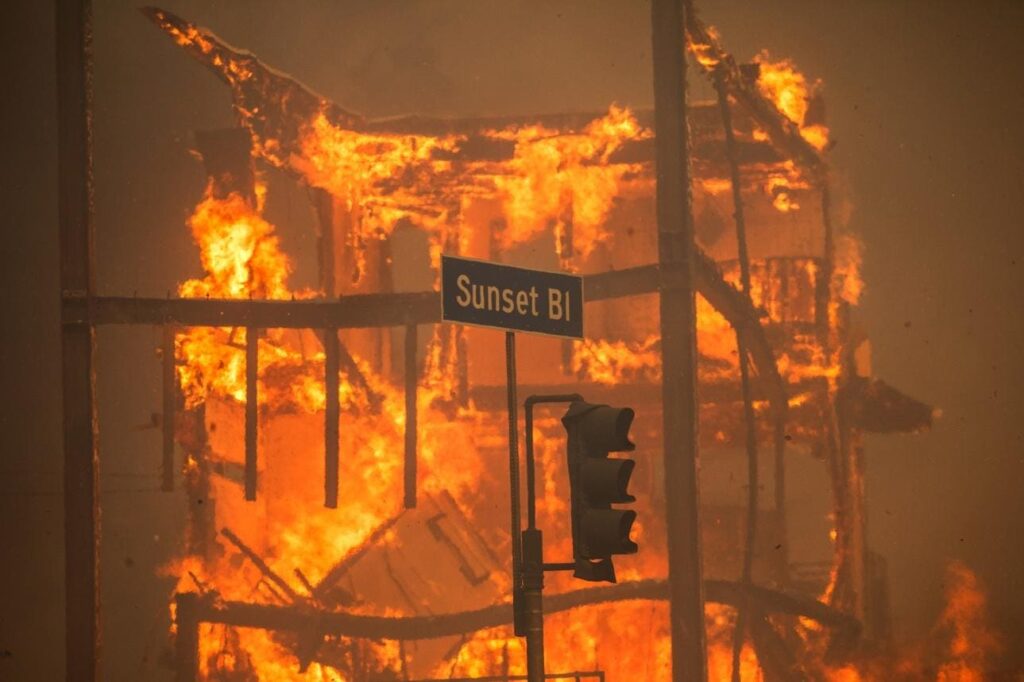If you experience the loss of your home, you have many issues to consider, and taxes are probably far down on the list. However, some fire victims may be receiving money from insurance companies, even if any eventual lawsuit recovery may be years away. Amounts received following a wildfire are not automatically tax-free, although there are rules that can make them effectively tax-free in many cases. With numerous complex tax issues, it is clear that fire victims still have tax issues.
The tax code provides some types of relief. Recently, a tax law passed to make many wildfire settlements tax free, but the law is new, needs interpretation, and is limited in numerous ways. In any event, tax returns are still required. Both the IRS and the California Franchise Tax Board gave tax extensions to those impacted. Apart from the recent changes, under the tax code, if your principal residence is destroyed in a federally declared disaster, you can claim a casualty loss deduction.
Individuals and businesses in a federally declared disaster area who suffered uninsured or unreimbursed disaster-related losses can choose to claim them on either the return for the year the loss occurred (in this instance, the 2025 return normally filed in 2026), or on the return for the prior year (2024). Taxpayers have extra time — up to six months after the due date of the taxpayer’s federal income tax return for the disaster year to make the election.
Market Value or Basis?
A casualty loss deduction is generally measured principally by your tax basis in the home, not by its fair market value. That is consistent with the tax law’s view that what you lose in disaster is what you invested in the home, not what it was worth. Nevertheless, the tax law also does not allow you to claim a casualty loss deduction for more than the decrease in value of your home as a result of the fire. In that way, a change in fair market value can limit the size of your casualty loss deduction, but not increase it.
Claiming a casualty loss deduction might appear to be attractive, particularly in the short term. After all, a big tax deduction would allow you to essentially get more money in your hands in the form of a reduction in income tax owed. However, the amount to claim as a casualty loss deduction, and whether it is advisable to claim a casualty loss deduction at all, is tricky when you expect to receive additional insurance proceeds or possibly litigation proceeds in the future. In short, some fire victims who claim a casualty loss end up regretting it later.
You are only allowed to claim a casualty loss deduction to the extent you do not have, and do not expect to have, your tax basis in your property reimbursed to you through insurance or other means (including litigation recoveries). Therefore, if your tax basis in your home is $1 million, and you expect to receive $800k in insurance for the home and a litigation recovery from a defendant (e.g., a utility company) for an additional $1.2 million, then you are expecting to fully recover your $1 million in tax basis in the home (and then some). Therefore, on these facts, you should not claim a casualty loss deduction for your home.
Projecting Future Recoveries
A casualty loss deduction should be calculated to be only the amount of tax basis you expect to have left after receiving all your future insurance proceeds and any litigation recovery. If you are too aggressive with the size of your casualty loss deduction, and end up receiving more in insurance and litigation recovery than you accounted for, it can adversely impact the tax treatment of your future recoveries. To reimburse the IRS for the tax savings you received from the excess casualty loss deduction, you are generally required to treat a portion of your future recovery as ordinary income under the tax benefit rule.
This usually means higher income tax rates on the portion of the future recovery that has to be recharacterized as ordinary income. It also means that the portion that has to be recharacterized as ordinary income cannot be deferred under Section 1033. We also anticipate that an excessive casualty loss deduction could require taxpayers to include in income part of their subsequent recoveries that may otherwise qualify for exclusion under the new tax exclusion, discussed below.
Therefore, you may want to exercise caution in calculating your casualty loss deductions. This is especially true if it is reasonably likely that you will receive insurance or litigation recoveries for property damages related to the fire in future years. In many cases, the question of whether to claim a casualty loss deduction will be mooted by the insurance proceeds.
Because insurance proceeds are often based on reconstruction costs (which are often higher than many homeowners’ tax basis in their homes), the amount you receive from insurance for property damages may exceed your tax basis in your home. If your insurance proceeds fully reimburse you for your tax basis in your home, reducing your basis to $0, then you generally cannot claim a casualty loss deduction, since it is limited to the unrecovered portion of your tax basis, which would be $0. You can read more about tax issues for fire victims, including the recent tax law that makes many wildfire legal settlements tax free if paid during 2020 through 2025.
Read the full article here

